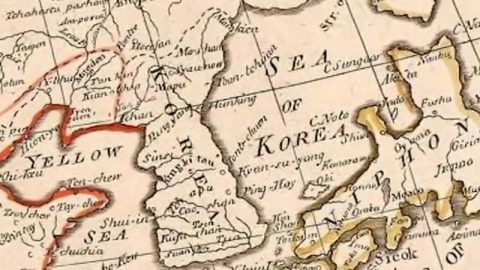By MARTIN FACKLER JAN. 29, 2015
TOKYO — Prime Minister Shinzo Abe of Japan on Thursday criticized an American textbook that he said inaccurately depicted Japan’s actions during World War II, opening a new front in a battle to sway American views of the country’s wartime history.
Speaking in Parliament, Mr. Abe pledged to increase efforts to fight what he called mistaken views abroad concerning Japan’s wartime actions, when the Japanese military conquered much of Asia. He singled out a high school history textbook published by McGraw-Hill Education that he said contained the sort of negative portrayals that Japan must do more to combat.
In particular, he objected to a description of women forced to work in Japanese military brothels during the war, a highly fraught issue in Japan and elsewhere in Asia. The textbook is used in some public schools in California.
“I just looked at a document, McGraw-Hill’s textbook, and I was shocked,” The Japan Times quoted Mr. Abe as saying during a meeting of a parliamentary budget committee. “This kind of textbook is being used in the United States, as we did not protest the things we should have, or we failed to correct the things we should have.”
McGraw-Hill has defended its textbook, saying its account is supported by historical fact.
Mr. Abe’s comments come as his government has sharply increased spending to improve Japan’s image abroad. Japanese conservatives like Mr. Abe have bridled at historical depictions of Japan as the sole aggressor in the war, saying that it fought to liberate Asia from Western domination.
Nevertheless, such views have drawn intense criticism from China and South Korea, two victims of Japan’s early-20th-century militarism, which call Mr. Abe a revisionist out to whitewash Japanese wartime atrocities.
In the past few years, Japan and South Korea have increasingly taken their rivalry to the United States, trying to sway American public opinion in their favor. Korean-American groups have used their growing political clout to amend textbooks and erect monuments promoting Korean views of historical and territorial disputes with Japan.
Under Mr. Abe, Japan has scrambled to catch up, dispatching diplomats to combat these efforts, with little success. Last year, the State of Virginia brushed aside Japanese objections when lawmakers voted to require new textbooks to include the Korean name, the East Sea, for the Sea of Japan, which lies between Japan and the Korean Peninsula.
One of the most hotly contested issues has been the portrayal of so-called comfort women, the euphemistic term for Japanese, Korean and other mostly Asian women put to work in Japanese military brothels. Korean activists call the women sex slaves, while Japanese conservatives contend that they were willing prostitutes.
Many scholars say that while there is no evidence that Japanese soldiers forcibly rounded up Korean women, many former “comfort women” have testified that they were tricked or otherwise trafficked to work in the brothels against their will.
The textbook cited by Mr. Abe is the most recent target of Japanese government efforts to alter what it sees as inaccurate portrayals of the issue. The book, titled “Traditions and Encounters: A Global Perspective on the Past,” contains a passage that says, “The Japanese Army forcibly recruited, conscripted and dragooned as many as 200,000 women aged 14 to 20 to serve in military brothels.”
The book also uses both Sea of Japan and East Sea as the name for the body of water on its maps.
In January, the Japanese Ministry of Foreign Affairs said that diplomats from the Japanese Consulate General in New York had met with McGraw-Hill officials in December to demand revisions to the textbook. The diplomats told the publisher, “There are serious factual errors pertaining to the comfort women and the name of Sea of Japan which run counter to the Japanese government’s position,” according to an account in the conservative newspaper Sankei Shimbun.
McGraw-Hill put out a statement a few days later saying that it had rejected the request. “Scholars are aligned behind the historical fact of ‘comfort women,’ ” the publisher said, “and we unequivocally stand behind the writing, research and presentation of our authors.”
[www.nytimes.com] | Original News @ HERE
Date : 2015/1/29



